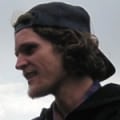On the first of the year, I wrote an entry in my journal that read: “Be more focused.” In the short paragraph that followed, I used the word ‘focus’ four more times.
Over the break, I was rearranging my home office, feeling particularly overwhelmed with the growing stacks of books on the floor and bits and pieces of gear scattered every which way.
In the process of reorganizing, I would come across a book I had forgotten about, sit there for half an hour or more revisiting a few chapters, which would then distract me to thinking about something else, eventually leading me to disregarding the cleanup for the rest of the day. Needless to say, it took me a long time to get everything in order!
I recently listened to a TED Radio Hour podcast on happiness where one of the speakers interviewed concluded from a study that people whose minds wander are generally less happy than those who are focused on the task at hand. On a personal level, I do not fully agree with this idea, however I do believe that too much distraction leads to a sense of discontent, and sometimes even malaise. Case in point, every day I delayed my office cleanup left me with a growing sense of angst associated with that space. While I find the process of browsing wonderfully stimulating intellectually, my continuous disregard for the actual intended task mostly negated any positive mental wanderings.
When I finally got my space in order, I felt huge sense of relief. Interestingly, the physical decluttering brought forth mental clarity as well. I find that the process of simplifying my life is not just about reducing and organizing what I own, but also about giving myself mental space, to breathe and focus on what I am doing with intent, to do it better.
In February of 2013, I ran the Iditarod Trail Invitational (ITI), a 350-mile race in Alaska. During the early part of the race, I was running with my friend Dave Johnston who commented, “You know, Joe, I’m a simple guy. I don’t really need music or anything to distract me, I just put my head down and run.” And run he did. That year, Dave went on to run one of the fastest-ever times in the event’s history, coming back the following year to set an astounding record of just over four days for the foot division. While Dave was being incredibly humble about his talent for pulling a sled really fast over a ridiculously long distance, what stuck with me most is his ability to focus his effort for such an extended period of time. Dave struggles to hold down food when he runs, so he mostly eats at checkpoints, of which there are only five on the ITI. When he set the record, he reached the Rohn checkpoint (210 miles into the race), ate a meal, and then proceeded to run the next 90 miles to Nikolai in some 18-and-a-half hours without taking in any additional fuel. Those 90 miles through the Farewell Burn are some of the most remote and desolate miles I have ever run. The landscape offers little visual variation the entire way–it’s mostly flat, straight, a sea of white, peppered with burned trees. It is physically strenuous and mentally agonizing. Dave told me this was one of the hardest segments of running he had ever done.
Eighteen miles into a recent long run, I was thinking of Dave and his ability to channel his energy in such a concerted manner. I was running up Chapman Drive, a shallow-grade dirt road, with the hollow, empty feeling in the pit of my stomach that I feel when I am on the verge of bonking. I looked down a couple of switchbacks below and saw a group of cyclists pushing the pace up the hill.
Instead of succumbing to the fatigue, I decided to stave those guys off to the top of the climb. I brought my attention six feet in front of me, relaxed my shoulders, and began to breathe a little harder while quickening my step.
Focus, man! C’mon! Focus! I told myself.
Just breathe and run, just breathe and run, I repeated in my head.
Before long, I was past the green gate at the top of the climb. Looking back, I could not see the cyclists. Ultimately, I did not really care that I beat them up the hill. What was much more satisfying to me was that even for a brief moment, I held true to my commitment.
My takeaway is that when we truly focus our attention on a task we have far greater ability than we could ever imagine to get the absolute best out of ourselves and potentially increase our happiness in the process.
Call for Comments (from Meghan)
- Do you generally have the focus you need to accomplish the main tasks of your life? Do you ever struggle with undesired distractions?
- Does your attention span increase and decrease when it comes to different activities, like specific kinds of work, your running, or reading a book?
- What value do you see in intentionally staying focused at certain times? And how about the value of letting your mind wander?


